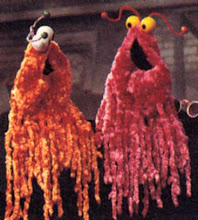today is a good day in indiana. there is sun, finally, and not just sun -- actual warmth. i am wearing flip-flops for the second day in a row. the grocery store is selling those tiny daffodils in pots, and hyacinth, and easter lilies -- finally, not just those pallid, dry, bland carnations. i have my front door open, and it's clearing the old winter heater air out of the house. it's delicious. my sister tells me often that winter in the midwest makes you appreciate spring, and while i like to grumble at her and tell her i'd appreciate it anyway, even if it were all the time, i suppose she's right (but shhh. . . don't tell anyone i've confessed to that, because i'd still like spring all the time).
and it is a good day for reading poems in a square of window sunlight.
by way of introduction to the poems i've been reading, i'll say this: talking last night to some creative writing folks, i made the claim that there are three types of poets in the world: 1) the kind who make me love poems again and sincerely want to go home and write and write, 2) the kind who are so good i throw up my hands and say, "i'm never writing again," and 3) the kind who are good but somehow get under my skin and so i go home and say, "i'm going to write better than you ever could, you jerk." yehuda amichai, the poet i've been reading this morning, is mostly in category 2, and a little in category 1.
i've had his book for several years but haven't really dug into it because i was always intimidated by it. maybe it's because it's a "selected poems" book, and it's big and chock full of several decades' worth of poems. or maybe it's because amichai is brilliant. he is, according to the brief bio on the back of the book, "Israel's most popular poet as well as a literary figure of international reputation." he can also "say virtually anything and give his words enough sting to defuse both sentimentality and hyperbole." i find him to be a master of startling simile and metaphor -- some of his descriptions give me so much pause that i cannot move on to the next poem. you see? intimidating.
and so, i will share a little of this with you -- this poem, a section from his long poem, "Songs of Zion the Beautiful," struck me as astonishing, especially that last stanza. and i agree with the back of the book -- he's able to make me see a war-battered place that's deeply loved and troubled, a landscape i've not seen (except in little blips on television), and he makes it not sentimental, but certainly emotional, and not hyperbolic, but accurate to the point of searing. i read it, and i thought, "yes, exactly." and then, "how do you do that?" and then i closed the book for a bit and stared out the window.
22
This is the end of the landscape. Among blocks
of concrete and rusting iron
there's a fig tree with heavy fruit
but even kids don't come around to pick it.
This is the end of the landscape.
Inside the carcass of a mattress rotting in the field
the springs stay put, like souls.
The house I lived in gets farther and farther away
but a light was left burning in the window
so that people would only see and not hear.
This is the end.
And how to start loving again is like the problem
of architects in an old city: how to build
where houses once stood, so it will look like
those days, yet also like now.
(published in The Selected Poetry of Yehuda Amichai, trans. by Chana Bloch and Stephen Mitchell, Berkeley: University of California Press, 1996.)
Subscribe to:
Post Comments (Atom)

1 comment:
mmm. Good, indeed.
Post a Comment